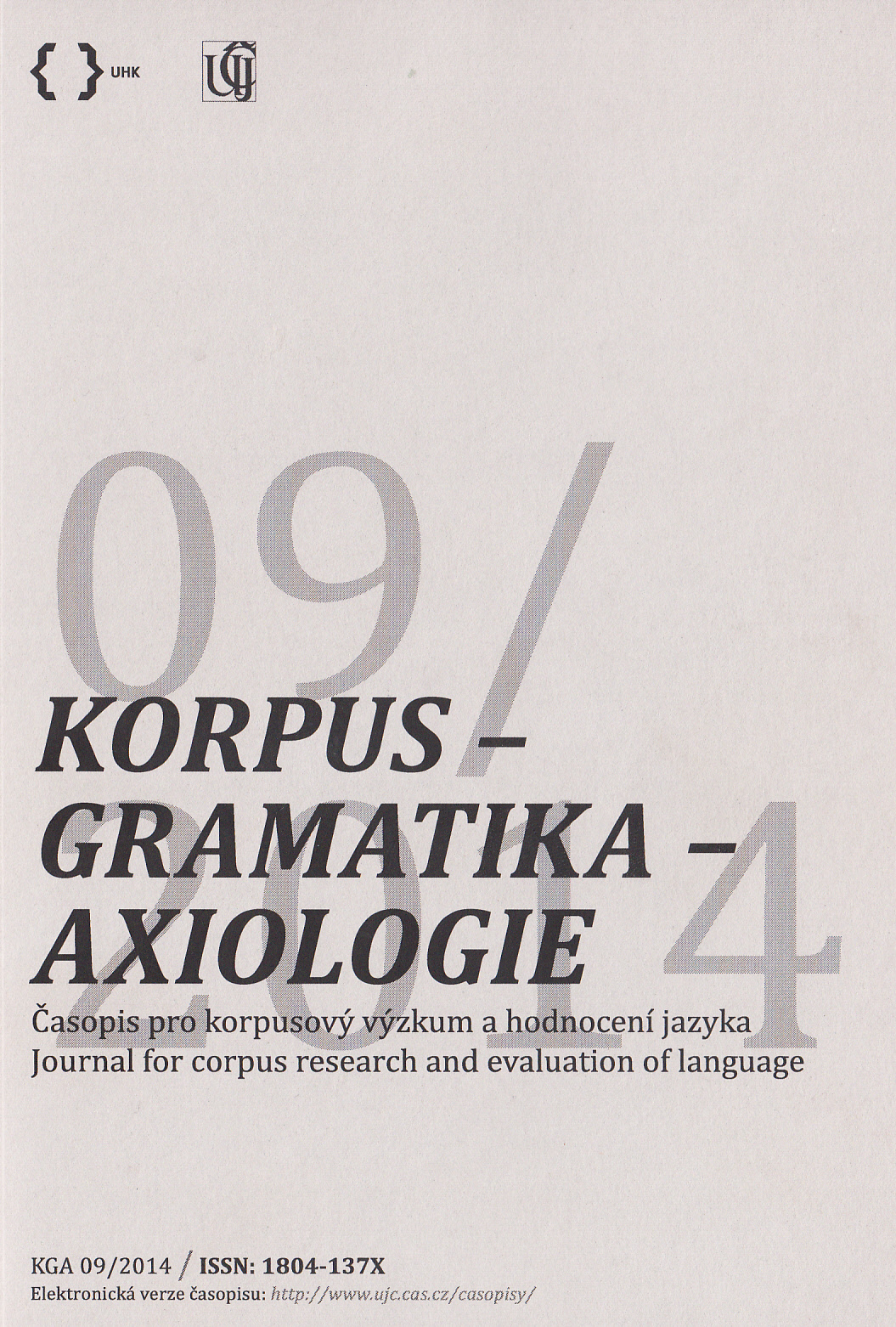Syntaktická adverbializace typu jaktěživo neměl názor (zrušení shody se subjektem v rodě a čísle)
Syntactic adverbialisation of the type jaktěživo neměl názor (disturbance of the agreement with the subject in gender and number)
Author(s): Josef ŠtěpánSubject(s): Language and Literature Studies, Theoretical Linguistics, Syntax
Published by: AV ČR - Akademie věd České republiky - Ústav pro jazyk český
Keywords: agreement and disagreement with the subject in gender and number; adverbialisation; frequency; noun; pronoun; adverbial (frozen) expression; negative clause; corpus
Summary/Abstract: On the basis of the material of the corpus SYN, the article deals, at first, with the descrip-tion of morphologically frozen expressions jakživ, jaktěživ with an adverbial meaning ‘never’ in negative clauses, while these expressions are, due to their ending, in syntactic agreement in gender and number with the grammatical subject. Also this agreement in positive clauses, where the frozen expressions mean ‘ever (in one’s life)’, is briefly men-tioned. However, the principal aim of the article is to show that the syntactic adverbiali-sation of these expressions in negative clauses causes the disturbance of this agreement, cf. jaktěživo neměl názor ‘never in his life had he an opinion’, while there are two possi-ble results of this adverbialisation: the forms of neuter jaktěživo, jakživo are more common in Bohemia, while the forms of masculine jaktěživ, jakživ are used rather in Moravia. The author interprets the frequency of both concordant and non-concordant (frozen) expressions, ordered according to their descending frequency in SYN.
Journal: Korpus - gramatika - axiologie
- Issue Year: 2014
- Issue No: 9
- Page Range: 56-65
- Page Count: 10
- Language: Czech

